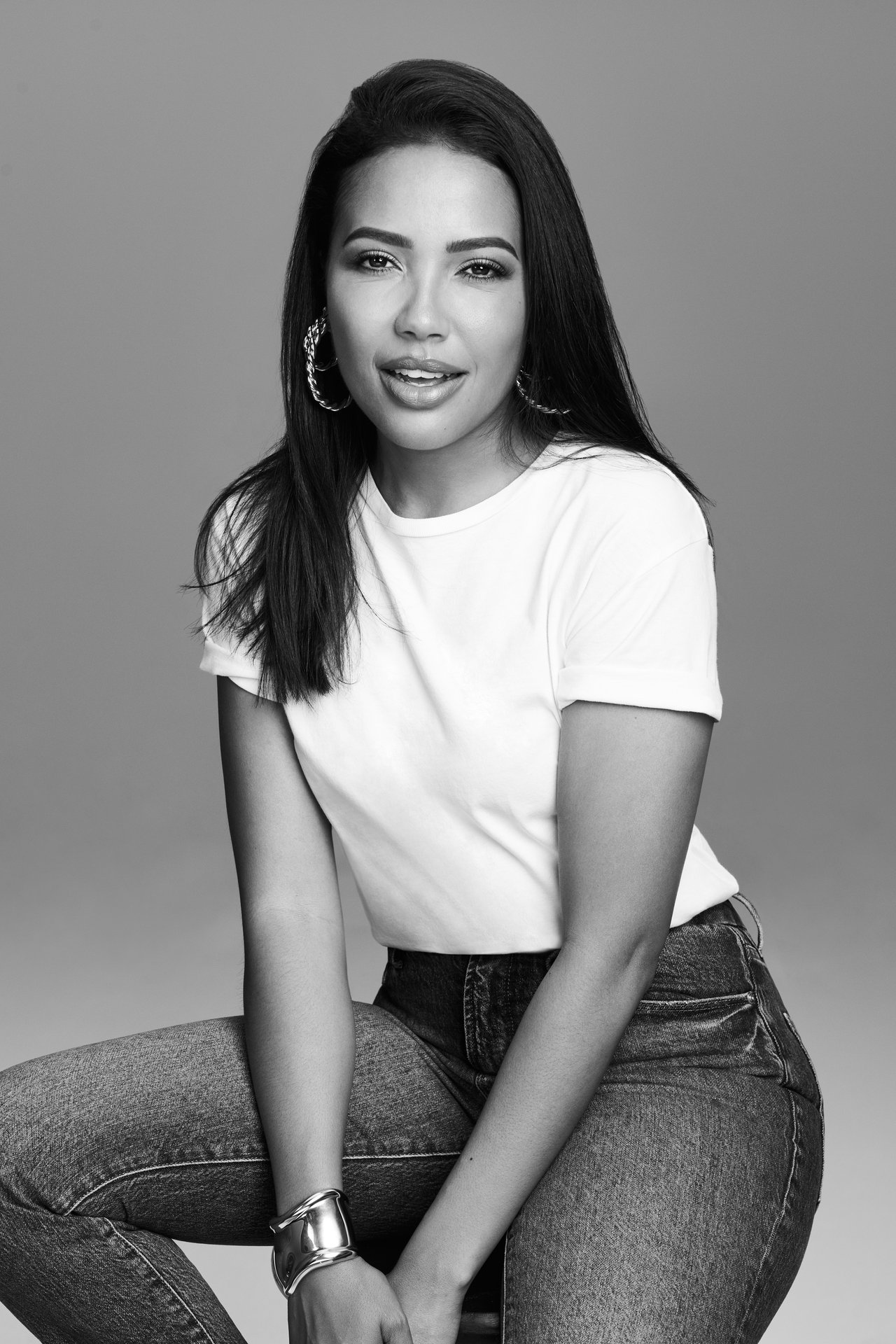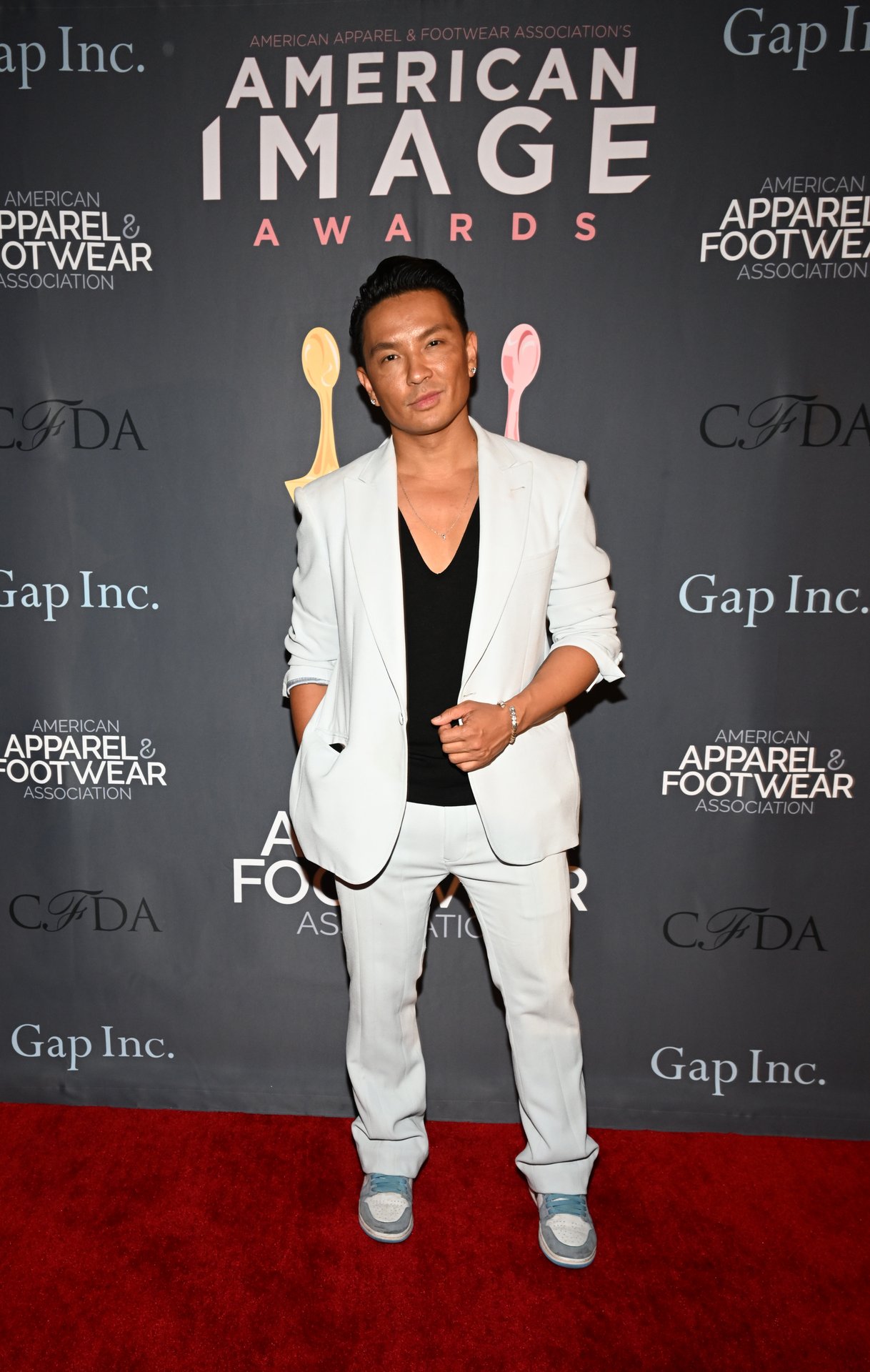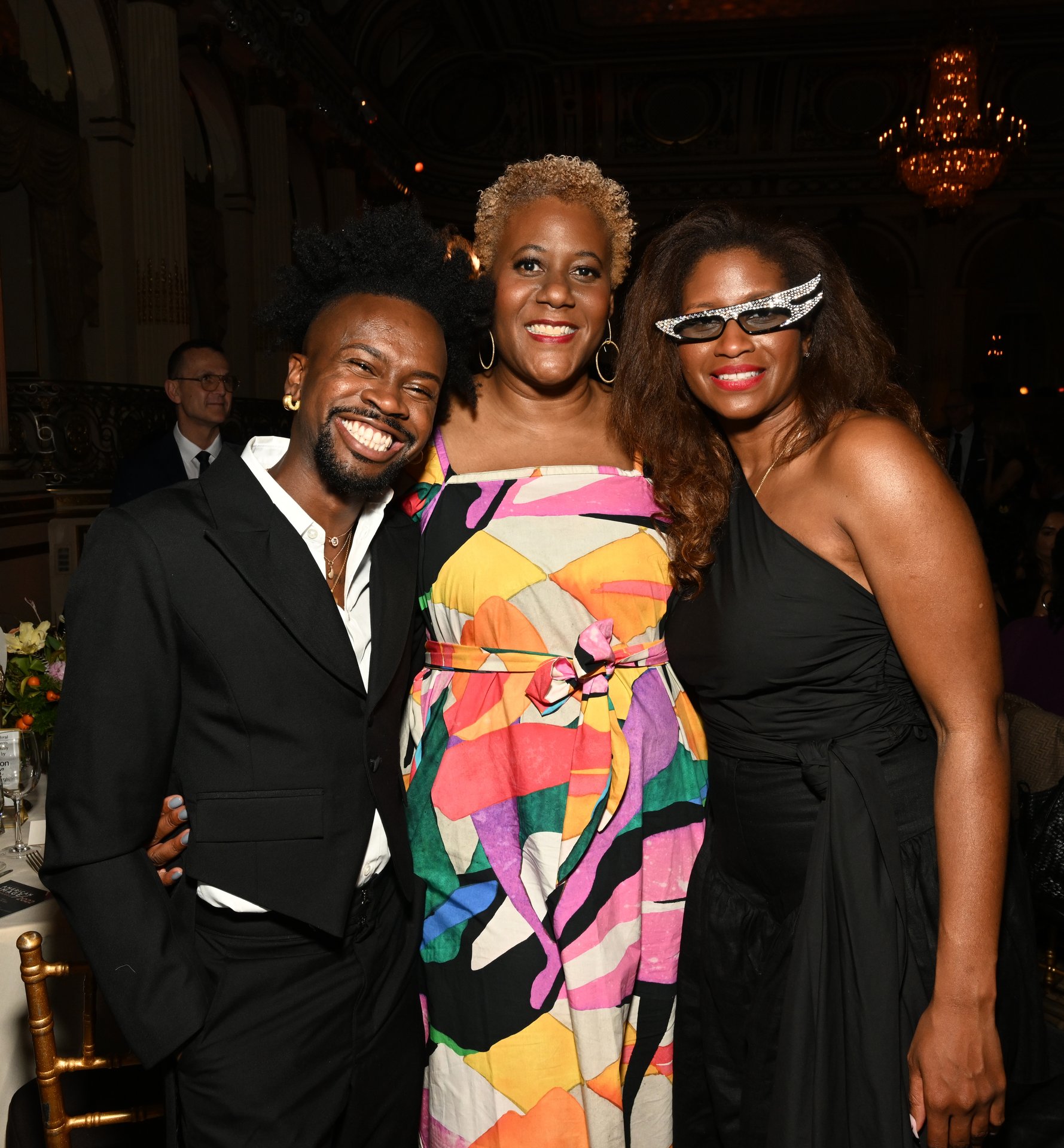Words With (Fashion) Friends: Emma Grede
April 27, 2022
Marc Karimzadeh


Emma Grede really doesn’t need an introduction. The executive has steadily built a profile with a series of game-changing brands. She is the CEO and Co-Founder of Good American, the first fully inclusive fashion brand she launched alongside Khloé Kardashian in 2016; she is also a founding partner of solutions-oriented shapewear brand SKIMS, and Co-Founder of plant-powered cleaning brand Safely – as well as a recurring Shark on Shark Tank, the first Black woman to do so.
Grede is an advocate for inclusive representation, and this year, Good American launched GOOD INC., their emerging fashion talent incubator initiative dedicated to inclusivity. Originally from London, the Los Angeles-based executive serves as the Chairwoman of the Fifteen Percent Pledge and as a trustee/board member of Baby2Baby.
We spoke to Emma about her career, the importance of diversity and inclusion, and the future of fashion.
Tell us more about yourself. How you did you get your start and how did you kickstart your career trajectory?
I grew up in the not-so-glamorous part of East London, but I knew early on that I wanted to work in and around fashion. I remember saving up every penny to get my hands on any sort of fashion magazine. I landed myself at the London College of Fashion, which was a total game-changer. I was so inspired by the fellow creatives and other like-minded people that I knew fashion was it for me. I spent the first decade of my career in marketing and later as CEO and Chairman of ITB Worldwide. That’s where I really started to cultivate my business acumen and identify what it takes to accelerate and scale a brand. I wanted to use the relationships I had built to create a new path, different from that of the typical retail fashion start-up. I took this direction, used it to forge partnerships and start new businesses with strong built-in credibility, embedded in solution-focused quality products.
How do you continue to prioritize diversity and inclusion across your brands?
Issues of diversity and representation in fashion and business have dominated the industry for far too long, so throughout my career I’ve been determined to create spaces that were built on strong values of inclusivity. As a Black female CEO, a diverse team was very important to me as it clearly lays the foundation for success, innovation and paves the way for change. In recent years, I’ve prioritized taking it one step further beyond just my brands and companies by really working to champion diversity in the fashion industry as a whole. I serve as the Chairwoman of the Fifteen Percent Pledge, a non-profit advocacy organization combating the injustices Black people face in the world by calling on businesses to dedicate 15 percent of their shelf space to Black-owned brands and ensure representation in the retail space. Now at our two-year mark, I am incredibly humbled by the progress we have made, but most importantly steadfastly committed to mobilizing even more collective steps towards our goals.
How do you define diversity and inclusion? What are some of the most important elements of diversity in the fashion space and inclusion for you?
Inclusion and diversity comes down to it being baked into the very foundation – most importantly from decisionmakers affecting business, impacting consumers and ultimately setting an example. Anyone can engage it as a trend initiative, but the authentic and tangible change comes from inclusion and diversity being placed at the forefront and across the board. This includes dedicating shelf space to minority-owned brands, empowering diverse senior leadership and prioritizing more representation in front of and behind the camera across brand creative. That’s what consumers want to see – they want to see representation genuinely integrated into the fabric of companies and know that a company shares their values. There’s definitely more work to be done, but we’re making positive progress and seeing a promising shift towards true inclusion across a multitude of industries.
What was your first foray into fashion? What appealed to you about the apparel sector?
After I was fortunate enough to make two successful exits, I knew I wanted to build a fashion brand rooted in solving a clear problem for women. By starting to think about what that business would look like, it became increasingly clear to me that there were so many women who were being completely ignored in the fashion space – I knew I wanted to bridge that gap. Good American originated from a candid conversation I had with my now co-founder Khloé Kardashian on what it means to be a woman today and the unfortunate reality that so many women face. That became the simple genesis – we started Good American in 2016 to empower all women to celebrate their bodies with confidence and offer high-quality designs in a full range of inclusive sizing.
You are heavily involved in Good American and SKIMS (where you serve as CEO/Co-Founder and Founding Partner, respectively). What did you learn, thus far, from these specific experiences?
We saw explosive success creating the largest denim launch in history and became a pioneer in driving the industry forward when it comes to complete inclusivity. With that came a massive responsibility, so we decided early on a key component would be listening. We wanted a two-way street where we could ask questions and get answers, understanding that we had to be willing to listen to the good and the bad. It shifted our priorities as a business because our model became much-informed by our symbiotic relationship with our consumer. We would have launched categories in a different priority if we hadn’t been listening to our customers. It turned out that they wanted different things. And they were interested in products that we didn’t necessarily have in our pipeline.
How does sustainability play into your philosophy?
Denim is historically not a sustainable product to create, so that is something that was top of mind for me and should be for all brands right now. Since day one, we set a goal to focus our efforts on what would make the biggest impact for our community, our business and the planet. We achieved that goal by recently becoming B Corp certified, validating our ongoing commitment to meet the highest standards of verified social and environmental performance, transparency and accountability to balance purpose and profit. I continue to carry that commitment across all of my endeavors, keeping the people and our planet top of mind, while also developing quality product.
What’s it been like to build global brands with Khloe Kardashian, Kim Kardashian and Kris Jenner? What did you learn from them? How do they inspire you and vice versa?
They all inspire me so much because even at the height of their success they continue to be the hardest workers in the room. I knew that having partners who were extremely well-known would be an amazing accelerator for any brand, but most importantly, I knew I needed someone who would understand the mission. Khloé, Kris & Kim (for Good American, Safely and SKIMS respectively) are fantastic collaborators who immerse themselves in every component – from conception to development to execution.
How does your portfolio focus on emerging talent and designers of color?
We recently launched GOOD INC., an initiative, dear to me, that supports and celebrates emerging talent with diversity in mind. The idea is to empower the next generation of creatives and businesses, but more than just in a way to produce products. It’s really about mentorship, shared resources and exposure. Our first collaboration was The B Project with powerhouse, Baroline Diaz, and our second is the newly-released behavingliketeenagers x Good American collaboration with artist, creative director and stylist, Prentis. Beyond that, I am humbled to be the first woman of color to sit as an investor on ABC’s “Shark Tank”, where I’ve added several businesses with minority founder to my portfolio. It’s been a really fun, yet impactful way to advocate for entrepreneurs of color and particularly female entrepreneurs of color, a group too often left out of funding conversation entirely.
Where do you see the future of fashion?
There are more diverse voices now then there have ever been and I’m thrilled to see brands embracing this long-overdue progress, humbly noting the strides that still need to be collectively taken. The IMPACT platform that CFDA has built is another concrete and wonderful example of the importance of nurturing black and brown creatives in fashion. I also see such value in building a community behind my brands and businesses. It’s so much more than pumping out product, I want to connect with the costumer and build a mission-centric experience, so I think the fashion brands that understand and honor that will find a lot of success.

